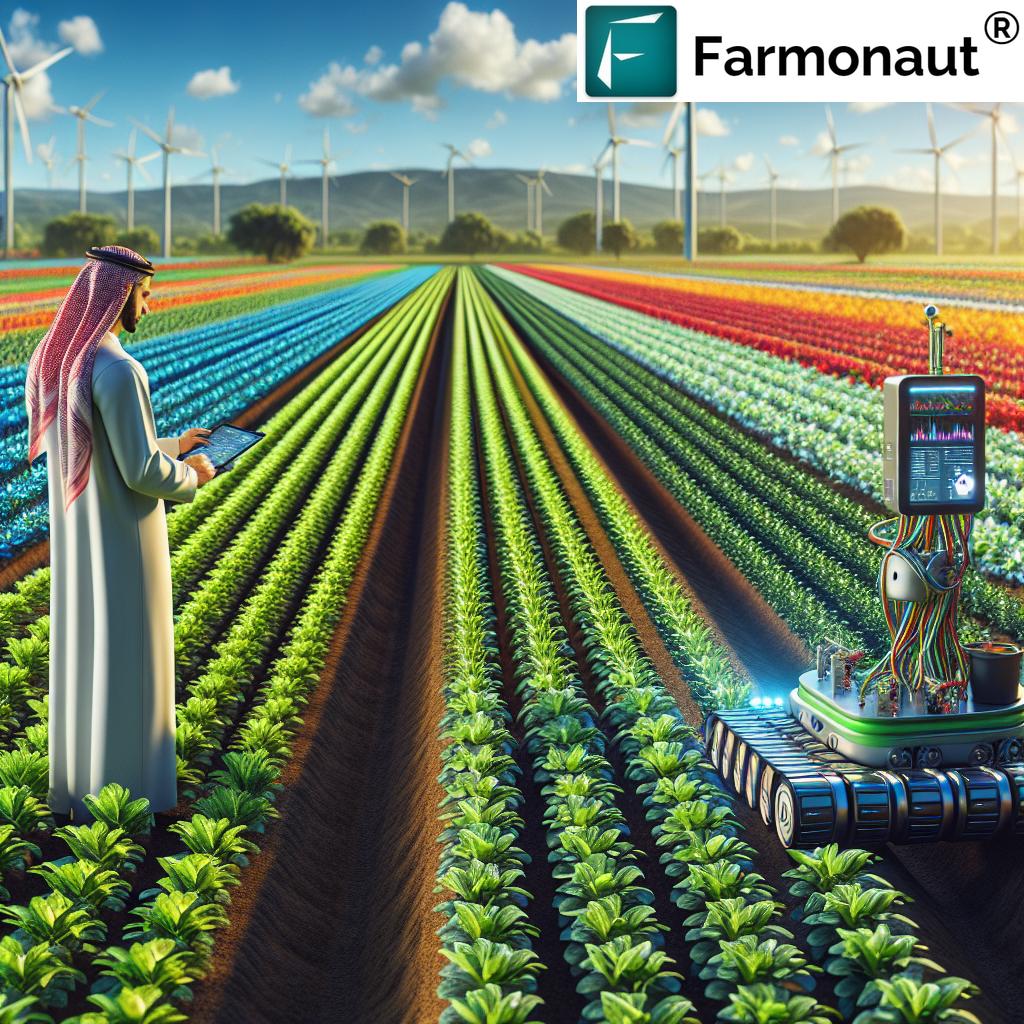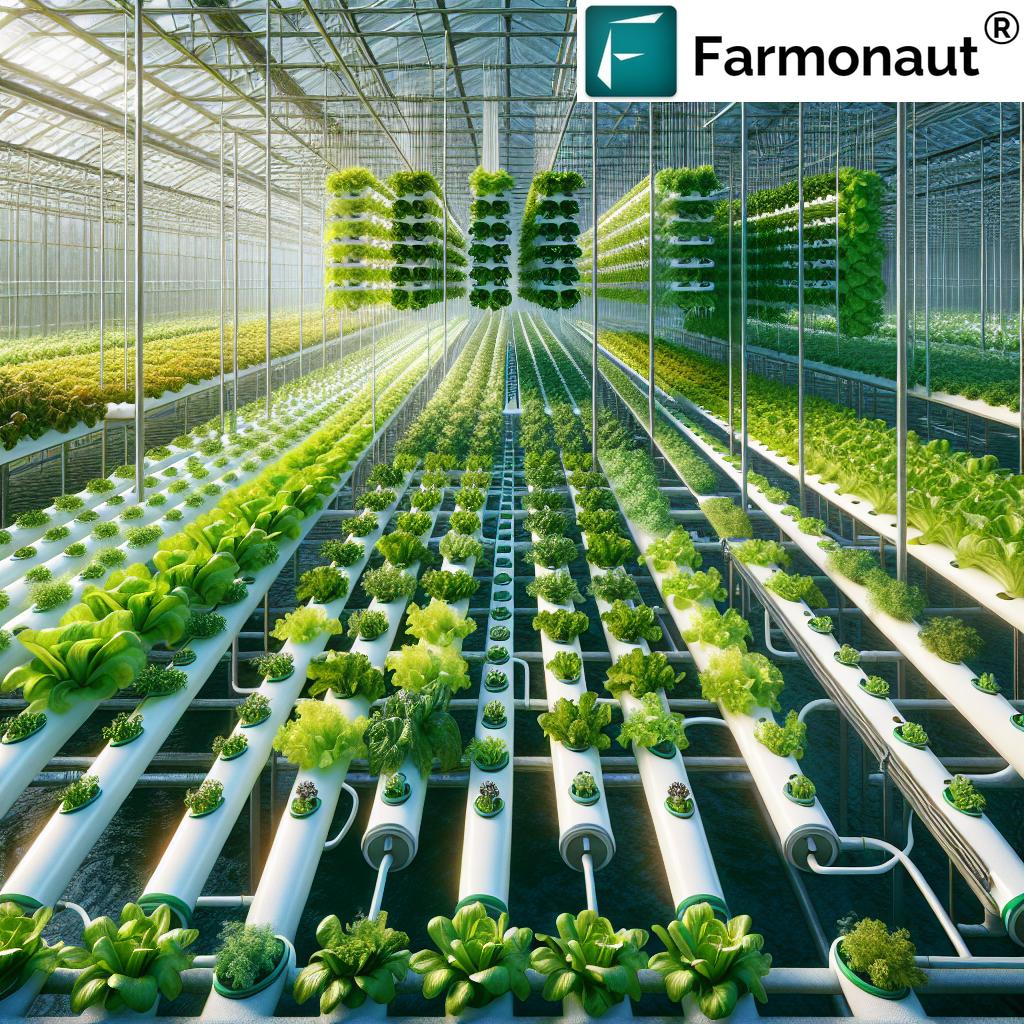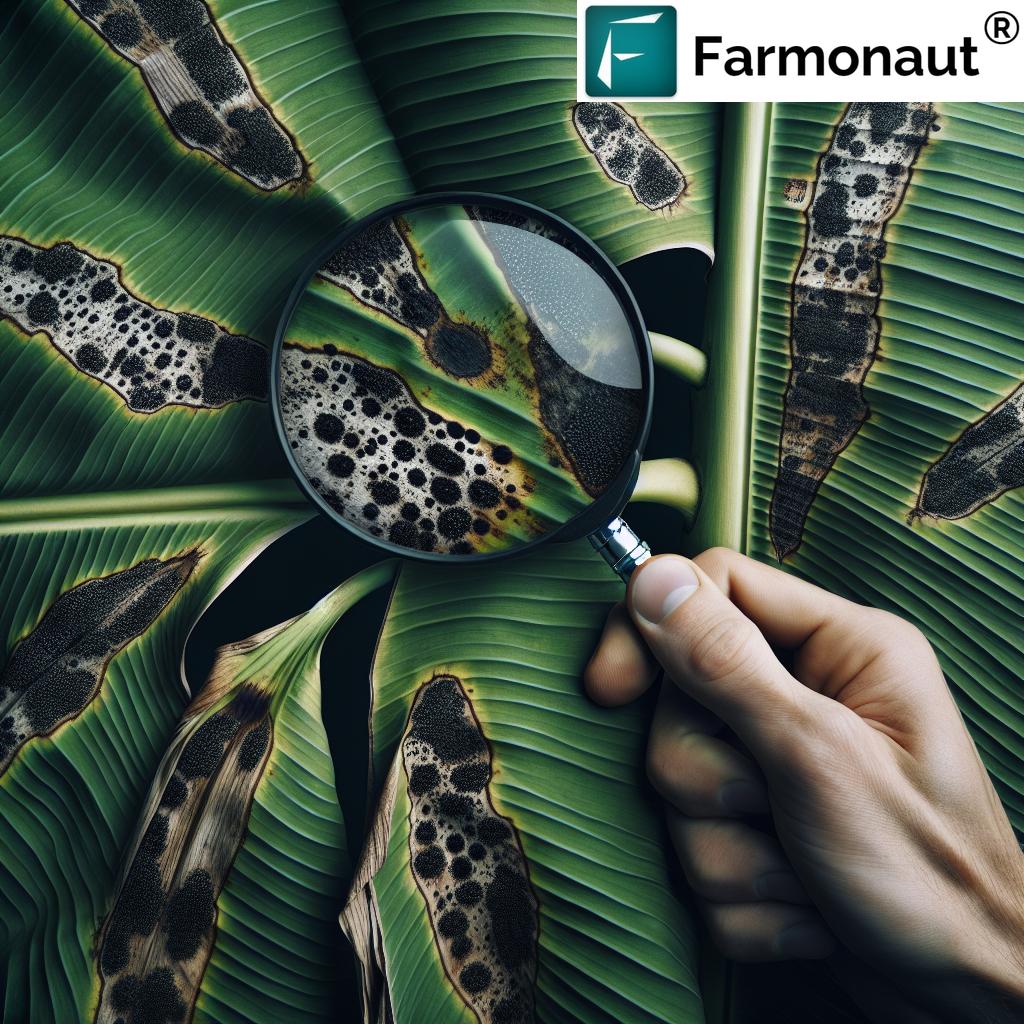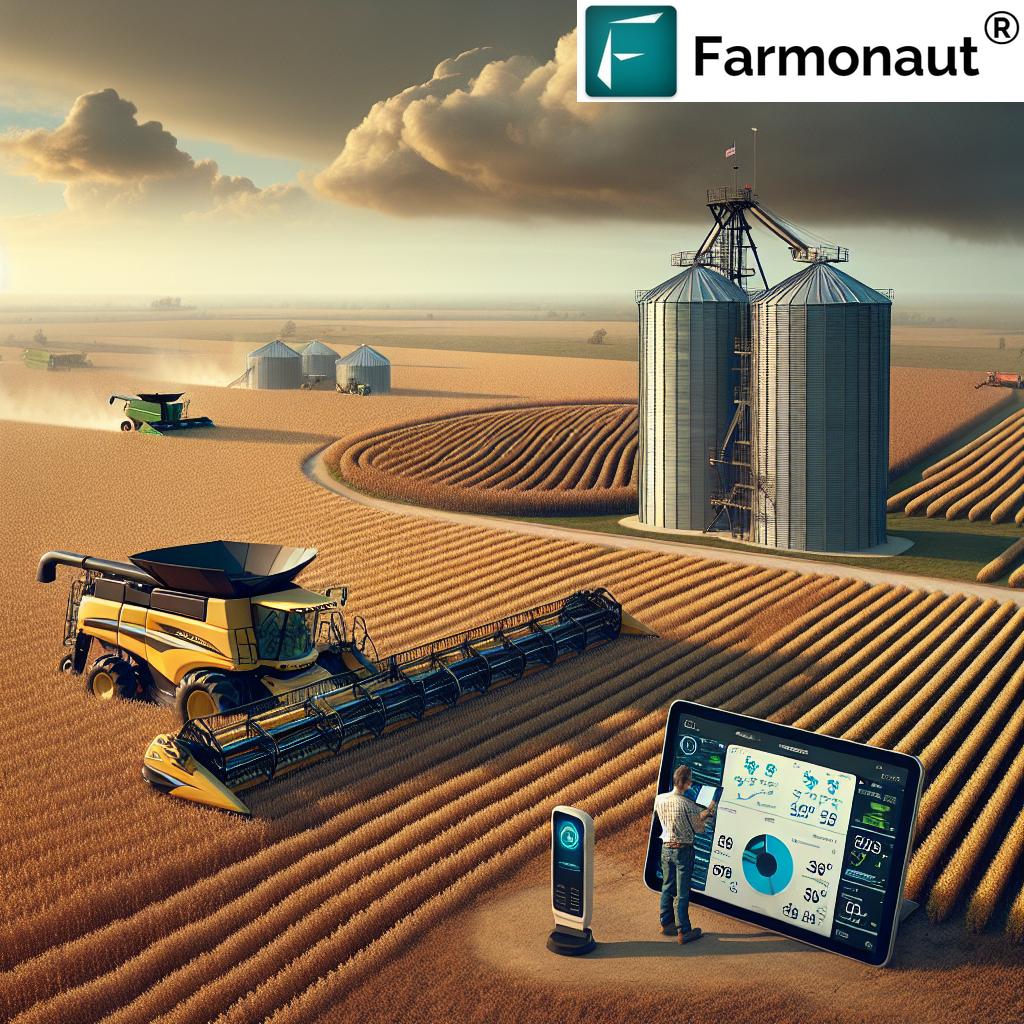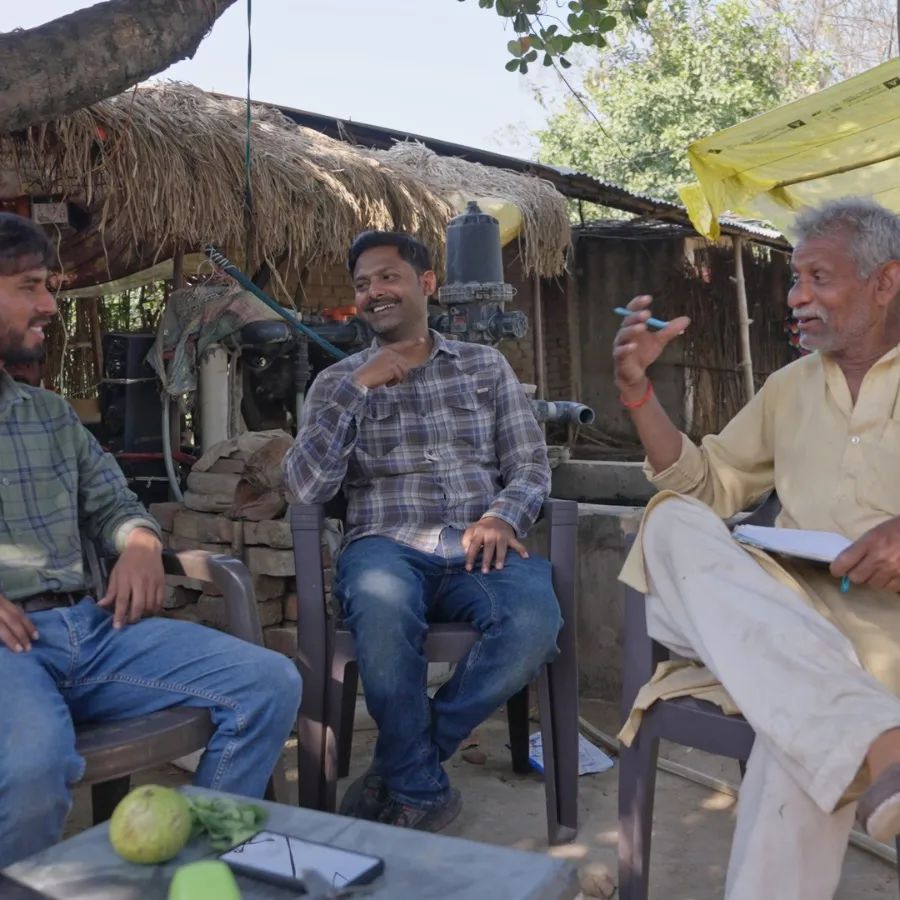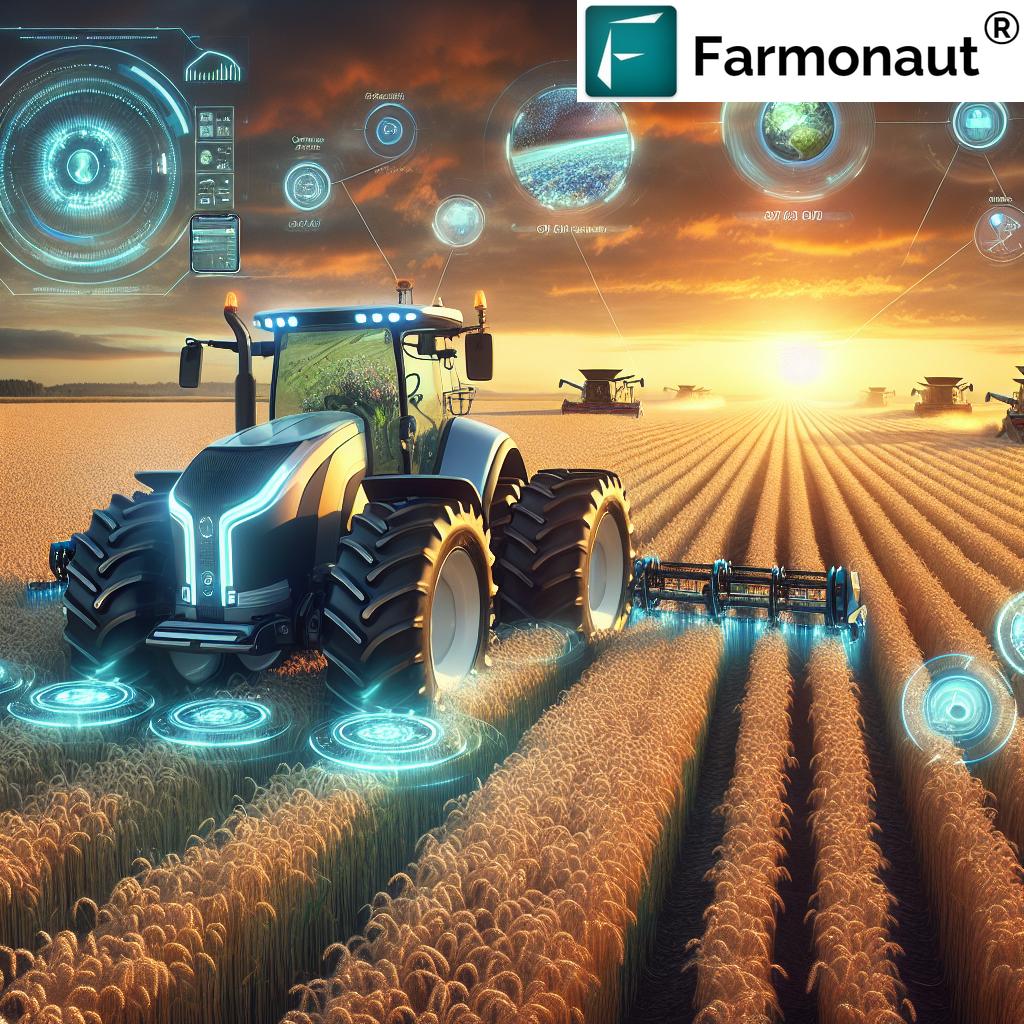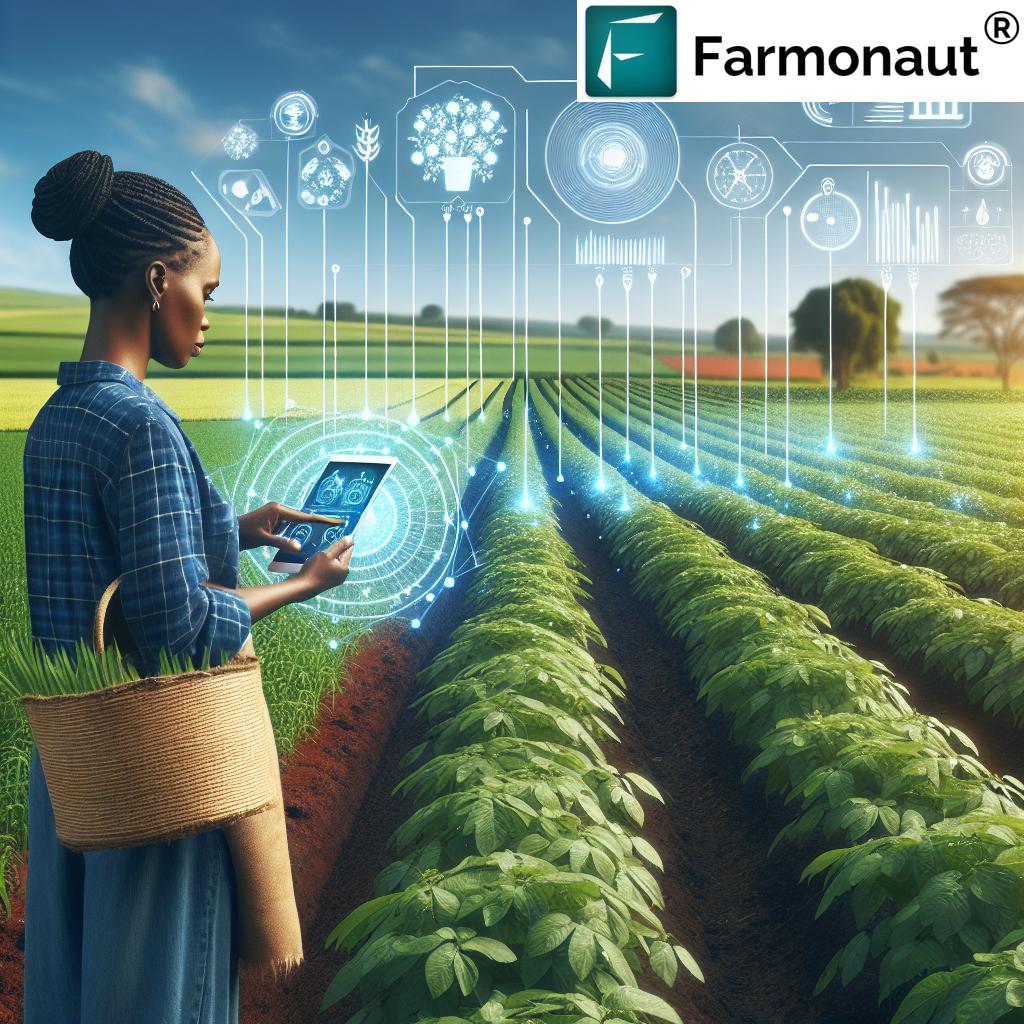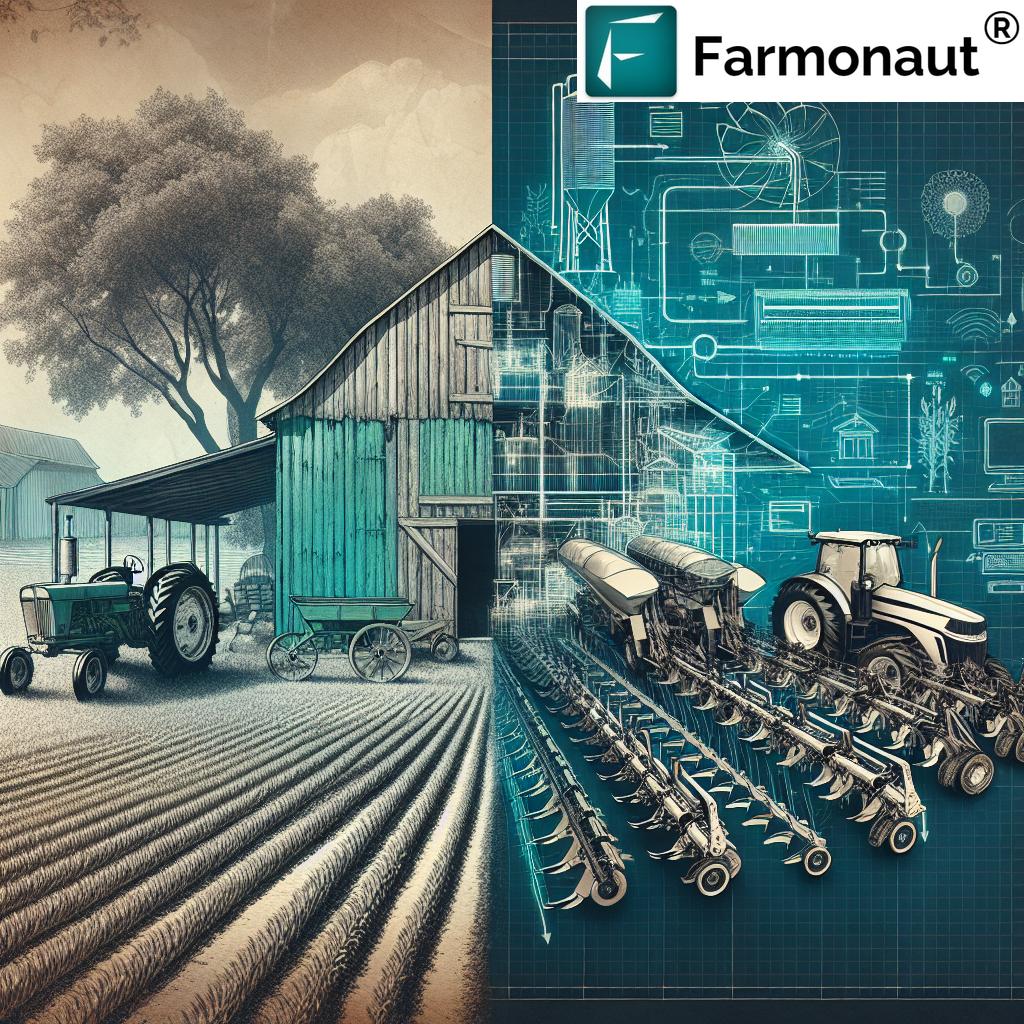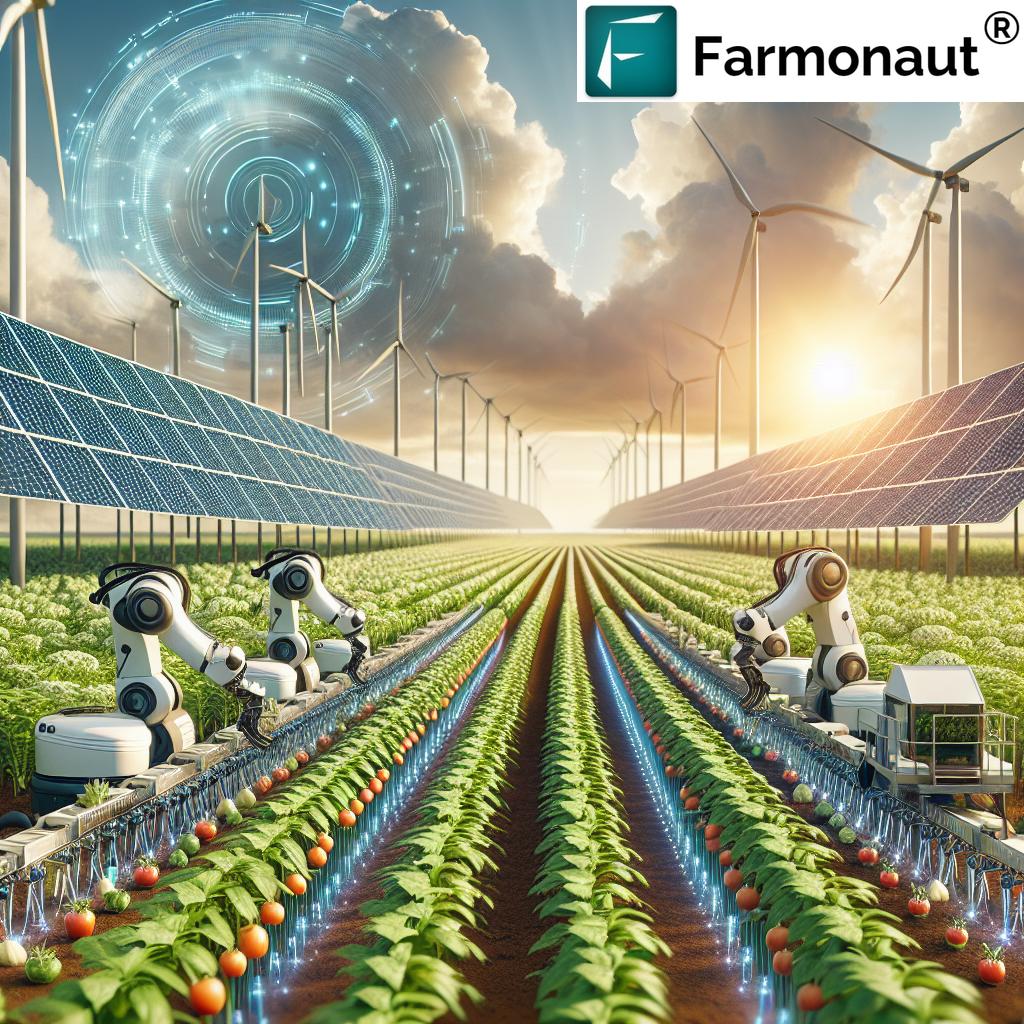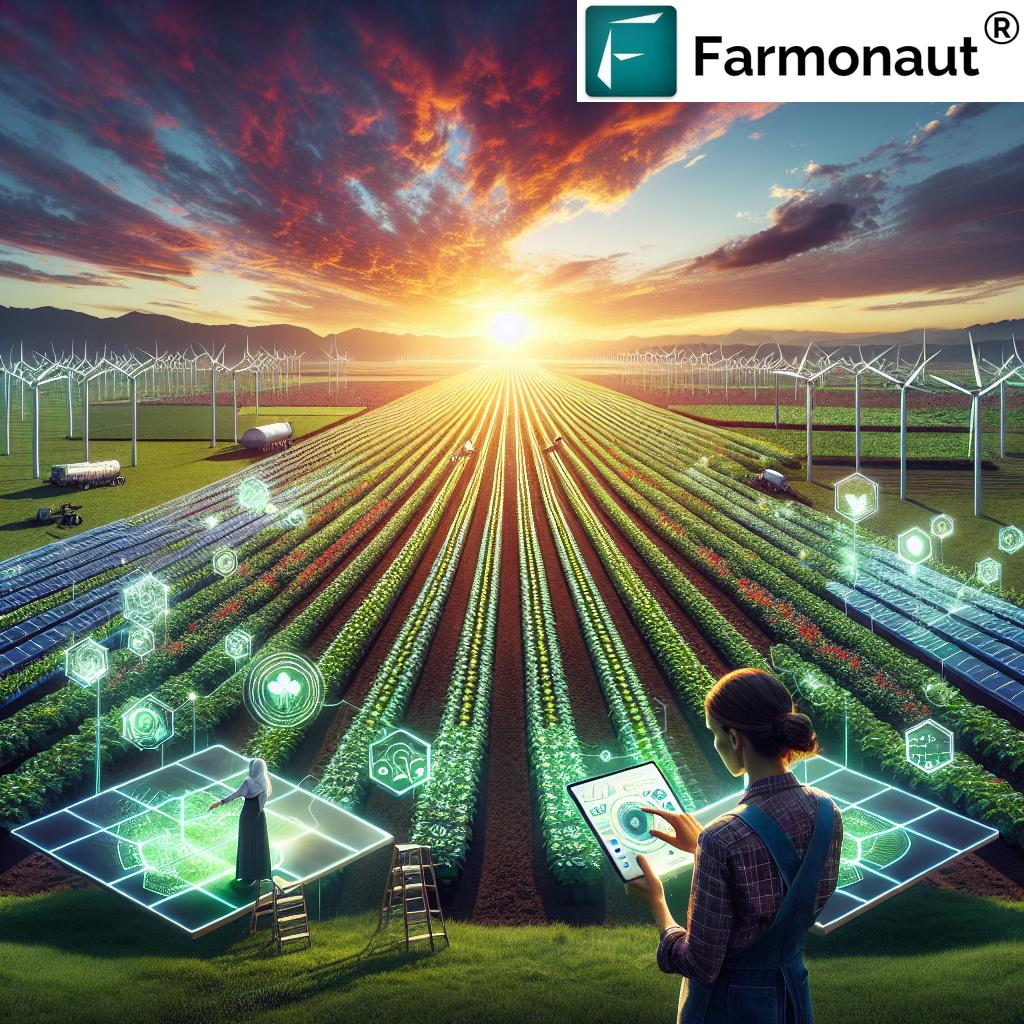How to Use AI to Improve Crop Yields: Shocking Secrets
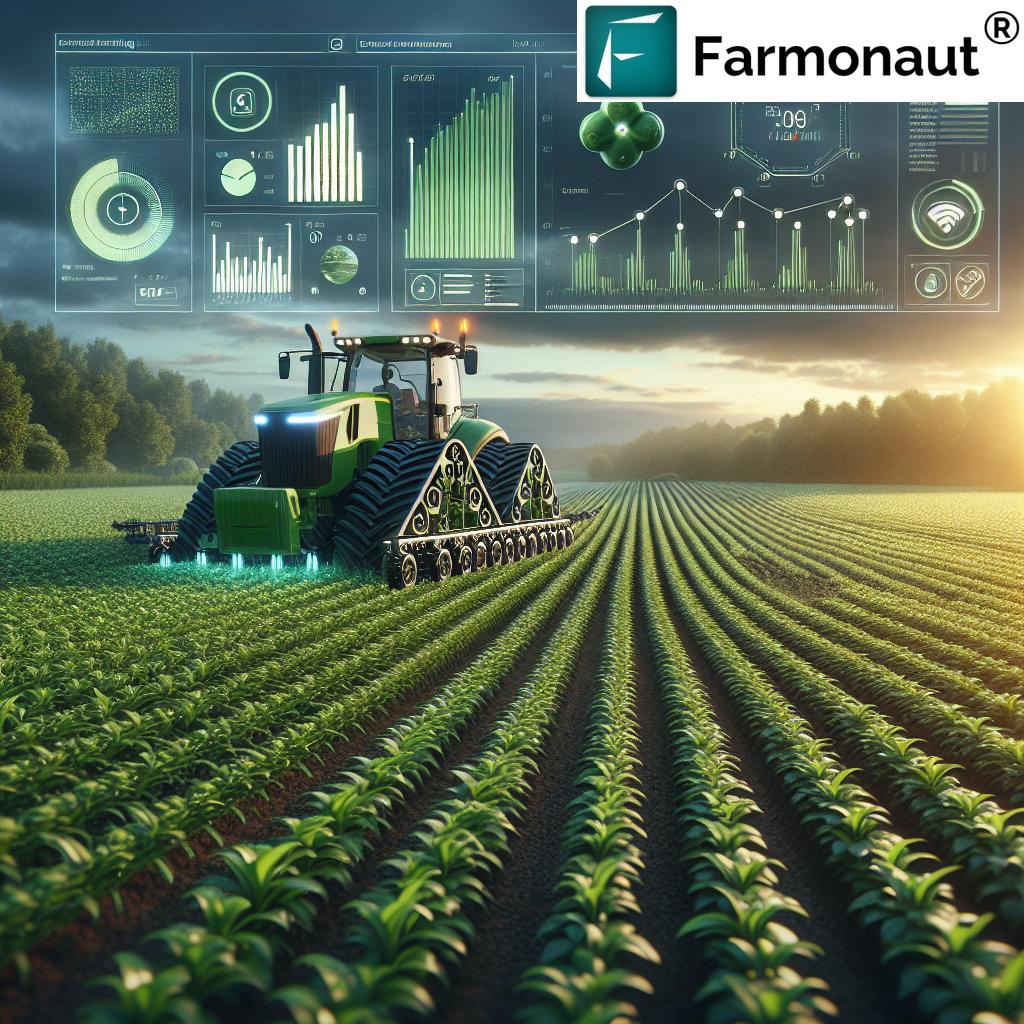
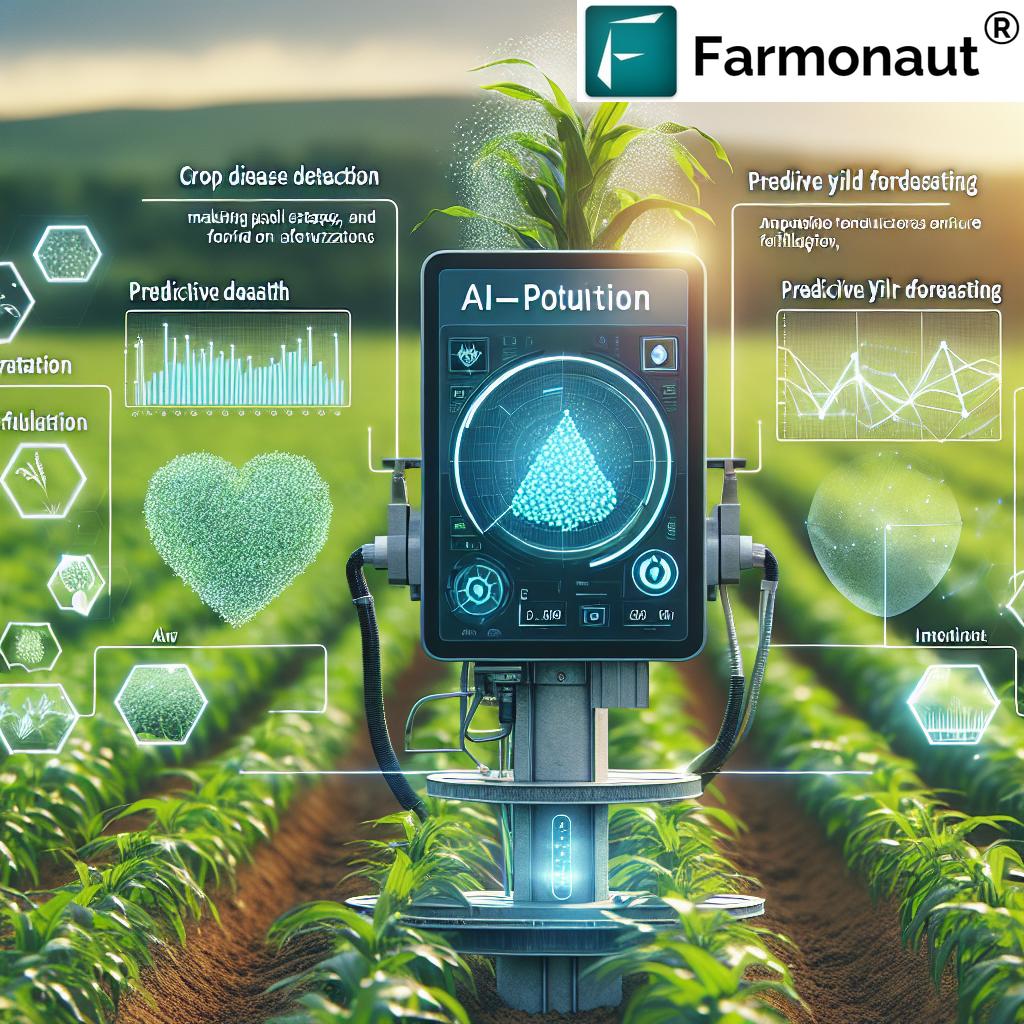
Table of Contents
- Introduction: AI—The Heartbeat of Modern Agriculture
- Precision Farming & Smart Irrigation: Unlocking the Power of Data
- Soil Health Monitoring & Fertilization: The Foundation for High Yields
- Crop Monitoring & Disease Detection: AI Spotlights Threats Early
- Weed Management: Automated Precision & Reduced Chemicals
- Autonomous Farming Equipment: Revolutionizing Efficiency
- Predictive Analytics & Yield Forecasting: Anticipate, Act, Achieve
- Real-Time Farming Guidance: Empowerment Through Innovation
- AI for Climate Resilience & Drought Management
- Supply Chain Optimization: Trust & Transparency
- Empowering Smallholder Farmers: Bridging the Digital Divide
- Farmonaut: Affordable AI-powered Crop Management & Satellite Farming Solutions
- Comparative Impact Table: Traditional vs. AI-Powered Precision Farming
- Challenges & Considerations
- Conclusion: Sowing Smarter, Reaping More
- FAQ: Answers to Top Questions About AI in Agriculture
Introduction: AI—The Heartbeat of Modern Agriculture
Artificial intelligence (AI) in agriculture is rewriting the rulebook of farming. As global food requirements soar along with population and climate pressures, our reliance on precision, efficiency, and sustainable farming practices is greater than ever. By integrating AI-powered crop management, precision farming technologies, smart sensors, computer vision, satellite imagery, and predictive analytics, we can unlock powerful and innovative solutions to boost crop yields, improve resource management, and promote environmental stewardship at scale.
In this in-depth blog post, we explore the shocking secrets behind how AI and digital transformation are revolutionizing every facet of agriculture—making farms, big and small, more productive and resilient.
Precision Farming & Smart Irrigation: Unlocking the Power of Data
At the core of AI in agriculture lies precision farming—an advanced application that leverages AI, sensors, drones, and satellite imagery to monitor, analyze, and manage crops, soil health, and environmental factors in real time.
Smart irrigation systems combine data from soil moisture sensors, weather forecasts, and crop water requirements to deliver the exact amount of water, precisely when and where it is needed. This targeted approach ensures that crops receive optimal hydration, reducing water usage and waste while bolstering crop yields and resource efficiency.
- Resource optimization: AI-powered solutions help us monitor soil moisture levels, predict evapotranspiration rates, and proactively manage irrigation schedules, conserving water.
- Targeted interventions: Remote-sensing and satellite imagery allow us to rapidly identify stressed zones and precisely address issues in specific field areas, rather than blanketing the whole farm.
- Sustainable practices: By minimizing runoff and over-watering, smart irrigation protects natural resources and reduces environmental impact.
Farmonaut’s satellite-based platform offers large-scale precision farm management using advanced multispectral data. This innovation lets users see which areas of their fields are thriving or under stress, enabling real-time, data-driven decisions for irrigation and crop management—no expensive on-field hardware required.
Soil Health Monitoring & Fertilization: The Foundation for High Yields
Maintaining optimal soil health is non-negotiable for sustainable, high-yield farming. AI-driven soil health monitoring deploys in-field sensors, satellite images, and machine learning algorithms, enabling us to continuously assess vital parameters such as pH, nutrient content, and soil moisture.
With this data, we can:
- Analyze pH levels and nutrients across fields to determine exact fertilization requirements.
- Implement variable-rate fertilization, applying nutrients only where and when needed.
- Prevent over-fertilization and minimize nutrient runoff, reducing cost and environmental burden.
- Boost long-term soil health by optimizing organic matter and tracking carbon footprinting (see Farmonaut’s digital carbon tracking for sustainability).
Our advancements in soil health monitoring give farmers science-backed guidance for fertilization strategies, ensuring stronger yields with less waste.
Crop Monitoring & Disease Detection: AI Spotlights Threats Early
Crop disease detection is a race against time. Early detection can mean the difference between a record yield and catastrophic losses.
Using computer vision, satellite imagery, drones, and machine learning, we now have the power to:
- Monitor crops for subtle changes invisible to the naked eye, identifying disease, pest infestations, or nutrient deficiencies as soon as they arise.
- Analyze high-resolution imagery to detect stress patterns, leaf discoloration, or abnormal growth.
- Trigger targeted interventions—such as precise applications of pesticides or fungicides—reducing the need for blanket chemical treatments.
- Reduce overall crop losses by responding before threats escalate.
These advances in AI-powered crop management are critical for sustainable farming practices, helping us optimize resource use and minimize environmental impact.
Farmonaut’s real-time crop health monitoring tools leverage satellite technology and AI to deliver actionable insights directly via web or mobile apps, making crop monitoring and disease detection affordable for all scales—from smallholder to enterprise.
Weed Management: Automated Precision & Reduced Chemicals
Weed control has always been one of farming’s most persistent challenges. Traditionally, it demands extensive manual labor or broad-spectrum herbicide use, leading to increased costs and environmental risk.
- AI-powered robots and vision systems now identify, target, and remove weeds accurately, working row by row or even plant by plant.
- These autonomous systems distinguish crops from weeds with computer vision, enabling precise mechanical or chemical weeding only where necessary.
- Reduces herbicide use and minimizes chemical residues in soil and water, supporting sustainable farming practices.
Such innovative weed management solutions free up valuable labor, save on input costs, and safeguard crop growth throughout the season.
Autonomous Farming Equipment: Revolutionizing Efficiency
Emerging autonomous farming equipment—from self-driving tractors to intelligent harvesters—are reshaping how we approach planting, tilling, and harvesting tasks:
- AI-powered machinery can operate with pinpoint accuracy, using GPS, AI, and sensor data to follow optimal routes and schedules with minimal overlap or waste.
- Consistent operations 24/7: Machines can work day and night, maximizing productivity even in labor-scarce seasons.
- Reduced labor costs allow us to allocate our human resources to strategic planning and management instead.
- Integrated fleet management—like Farmonaut’s tools—enables agribusinesses to optimize logistics, monitor equipment utilization, and improve farm-wide efficiency. Learn more at Farmonaut Fleet Management.
With such advances, AI in agriculture supports precision, minimizes human error, and ensures that every critical farming operation is performed with the highest possible efficiency.
Predictive Analytics & Yield Forecasting: Anticipate, Act, Achieve
By analyzing historical data, weather patterns, satellite imagery, and soil conditions, AI models can now predict crop yields and identify risks before problems arise.
- Predictive yield forecasting allows us to plan harvests, labor, and sales more effectively.
- AI-based risk analysis highlights fields vulnerable to pests, diseases, or drought for early intervention.
- Weather forecasts and satellite input feed models that dynamically adjust recommendations based on current & predicted growing conditions.
Farmonaut supports predictive analytics and yield estimation via its API, enabling us to integrate these powerful insights directly into our farm management workflows or custom digital solutions. Find technical details in the API developer docs.
Real-Time Farming Guidance: Empowerment Through Innovation
AI’s greatest impact may be in empowering smallholder farmers—traditionally underserved by high-tech solutions. Real-time mobile apps and AI-powered advisory tools democratize access to agronomic knowledge and digital farming strategies.
- Personalized AI-guided advice—like Farmonaut’s Jeevn AI system—delivers tailored recommendations based on satellite data, field history, and live weather feeds.
- Mobile accessibility ensures that guidance for resource optimization, plantation management, pest control, and irrigation is only a tap away.
- Increases crop yields, reduces risk, and helps create climate-resilient agricultural systems.
With such tools, even farmers in remote regions gain the ability to make data-driven decisions and adapt best practices—securing yields and livelihoods.
AI for Climate Resilience & Drought Management
As climate change intensifies weather extremes, we must help crops withstand drought, heat, and unpredictable seasons. Artificial intelligence accelerates the development of climate-resilient crop varieties and the implementation of water-saving strategies:
- AI-driven plant breeding: Analyze genetic and environmental data to accelerate discovery of drought- and heat-tolerant crops.
- Drought prediction: Monitor and forecast water stress at field or regional level using satellite-based soil moisture mapping and climate models.
- Supports food security: Proactive adaptation reduces yield losses, ensuring farmers remain productive through challenging seasons.
Together, AI and satellite technologies form the backbone of sustainable agriculture, enabling us to sustain production as environmental challenges mount.
Supply Chain Optimization: Trust & Transparency
Optimizing the agricultural supply chain is critical for reducing losses, fair pricing, and food safety. AI and blockchain integration brings game-changing transparency.
- AI predicts demand, optimizes logistics, and minimizes food waste.
- Blockchain ensures product traceability, giving every participant—from producer to consumer—confidence in the authenticity of agricultural products.
- Prevents fraud: End-to-end tracking reduces risk of counterfeiting and supply chain controversy.
Discover Farmonaut’s blockchain-based product traceability, which is an essential tool for food, textile, and allied industries aiming for transparent, efficient supply chains. Explore Farmonaut Traceability Solutions.
Empowering Smallholder Farmers: Bridging the Digital Divide
Most of the world’s farms are small, and empowering smallholder farmers is vital for food security, sustainability, and rural resilience:
- Affordable, app-based platforms: Satellite-driven crop health monitoring, resource management, and AI guidance are now accessible via smartphones or web—even on limited budgets.
-
Secure access to crop loans and insurance:
Satellite verification streamlines lending and claim settlement, reducing fraud and opening new financial opportunities for smallholder farmers. - Global reach: Initiatives extend beyond India, supporting farmers across Africa, Asia, and Latin America—bridging the digital divide and building local agricultural capacity at scale.
Farmonaut’s modular, subscription-based model ensures solutions are scalable, flexible, and affordable—from a single family farm to large agribusinesses and state agencies.
Farmonaut: Affordable AI-powered Crop Management & Satellite Farming Solutions
At the frontlines of agricultural innovation, Farmonaut delivers advanced, satellite-based, and AI-powered farming solutions to the hands of every farmer, regardless of scale or location.
Key Technologies:
- Satellite-based crop health monitoring: We leverage multispectral imagery from satellites to measure NDVI, GNDVI, NDRE, soil moisture, and more—enabling data-driven, precision farming decisions that improve yields and conserve water.
- Jeevn AI Advisory System: This AI-driven, personalized farm advisory tool delivers real-time crop insights, weather updates, and actionable management strategies—improving productivity and efficiency.
- Blockchain product traceability: Every step of the journey from farm to consumer is transparent and verifiable, ensuring authenticity in food and textile supply chains (see product traceability).
- Resource and fleet management: Optimize farm machinery, logistics, and operational expenses with real-time fleet tracking and data analytics.
- Carbon footprinting: Track and reduce emissions for environmental compliance and premium markets (learn more).
Accessible & Scalable for All
- Flexible subscription packages: Suited to individual farmers, agribusinesses, and institutional clients. Adapt services to your exact acreage and operational needs.
- Platform access from anywhere: Android, iOS, browser/web, or even api integration for custom agri-tech deployments.
- No costly hardware: Farmonaut leverages remote sensing—minimizing upfront investment and making precision farming affordable and accessible worldwide.
- Dedicated for smallholders: With targeted, affordable solutions, Farmonaut is a driving force in empowering smallholder farmers for the digital agriculture revolution.
Comparative Impact Table: Traditional vs. AI-Powered Precision Farming
| Aspect | Traditional Approach | AI-powered Precision Farming | Estimated Crop Yield Increase (%) | Resource Usage Reduction (%) | Efficiency Improvement | Sustainability Impact |
|---|---|---|---|---|---|---|
| Water Usage | Fixed schedules, manual checks | Smart irrigation with real-time monitoring | 15–20% | Up to 40% | More timely and precise irrigation, less water waste | Conserves groundwater, reduces runoff |
| Fertilizer Optimization | Uniform field application, risk of overuse | Variable-rate, site-specific application | 10–15% | 25–30% | Reduces input cost, maximizes yield per input | Minimizes nutrient leaching, maintains soil health |
| Disease Detection | Visual scouting, often delayed response | Real-time monitoring, early computer vision detection | 10–25% | — | Quicker, targeted action, less crop loss | Reduces unnecessary pesticide use |
| Weed Control | Manual labor or broad herbicides | AI-guided autonomous robots, spot spraying | 5–10% | 20–70% | Fewer labor hours, more precise treatment | Limits chemical resistance and residue |
| Harvest & Labor Costs | Manual, often inefficient scheduling | Autonomous machinery, predictive scheduling | 15–25% | — | Reduced labor dependency, faster throughput | Less CO₂ from fewer, optimized field passes |
| Supply Chain | Manual, often lacks transparency | AI & blockchain-enabled traceability | — | 5–10% waste reduction | Reduces fraud, optimizes logistics | Enables food safety, fair trade |
Challenges & Considerations
While AI in agriculture holds immense promise, several key challenges must be addressed for equitable, widespread adoption:
-
Data Accessibility and Quality:
Many regions lack the necessary digital or sensor infrastructure. Reliable, up-to-date data is essential for AI-powered insights. -
Cost and Affordability:
Initial investment in technology can still be prohibitive for some smallholder farmers. Affordable, scalable subscription models—like Farmonaut’s—are critical to inclusivity. -
Technical Expertise:
Deploying and managing AI tools requires training and capacity building. Educational support is needed to empower farmers to use advanced solutions effectively. -
Data Privacy and Security:
The collection and sharing of farm data raise privacy concerns. Transparent policies and secure platforms (see Farmonaut’s blockchain-based traceability) help safeguard sensitive agricultural information.
Ongoing initiatives and innovation focused on digital literacy, open access, and low-cost delivery models hold the potential to bridge these gaps and ensure AI benefits all farmers.
Conclusion: Sowing Smarter, Reaping More
The AI-driven agricultural revolution is no longer a distant vision—it’s today’s reality. By integrating AI, precision farming technologies, satellite-based solutions, and real-time data analytics, we as farmers and agri-businesses gain the ability to:
- Optimize every input—from water and fertilizer to labor and time—delivering higher crop yields with less environmental and financial cost.
- Anticipate and act against threats—such as disease, pest infestations, or drought—before they impact productivity.
- Foster sustainable practices—minimizing chemical use, conserving resources, and enhancing trust in food supply chains.
- Empower farmers of all scales—with affordable, data-driven tools that promote resilience and innovation.
As we move forward, the fusion of AI, satellite imagery, and digital insight will only deepen—ensuring that sustainable agriculture, increased food security, and environmental stewardship walk hand-in-hand.
Ready to experience the future of farming?
Download Farmonaut’s mobile and web applications, or explore API integrations for agricultural research, development, and business innovation.
FAQ: Answers to Top Questions About AI in Agriculture
1. What is AI in agriculture?
AI in agriculture refers to the use of artificial intelligence and machine learning technologies to monitor, analyze, and improve farming operations. This includes everything from disease detection, soil health analysis, yield prediction, and irrigation management to supply chain optimization.
2. How does precision farming increase crop yields?
Precision farming uses real-time data from sensors, drones, and satellites to deliver targeted interventions—such as precise watering, fertilization, and pest control—exactly when and where it’s needed. This boosts productivity, reduces losses, and leads to significant yield improvement.
3. What are the main benefits of AI-powered crop management?
- Optimized use of resources (water, fertilizer, labor)
- Early detection and mitigation of pests and diseases
- Reduced production costs and higher crop yields
- Environmentally sustainable farming practices
- Supply chain transparency through digital traceability
4. Are these technologies affordable for smallholder farmers?
Yes. Solutions like Farmonaut harness satellite data and mobile apps to bring high tech crop management to even small farms—removing the need for costly in-field hardware and making AI-powered precision farming affordable worldwide.
5. How secure is my farm data with AI-based platforms?
Leading platforms (including Farmonaut) use blockchain-based systems and strict data policies to protect farm data privacy, authenticity, and security.
6. What role does AI play in crop loan and insurance?
Satellite and AI verification make it faster and safer for financial institutions to validate crop condition and coverage—reducing fraudulent claims and improving access to loans and insurance for farmers.
7. How can I get started with Farmonaut?
Simply download the Farmonaut app on Android, iOS, or use the browser platform. For business integration, access the Farmonaut API or see the API developer documentation.






